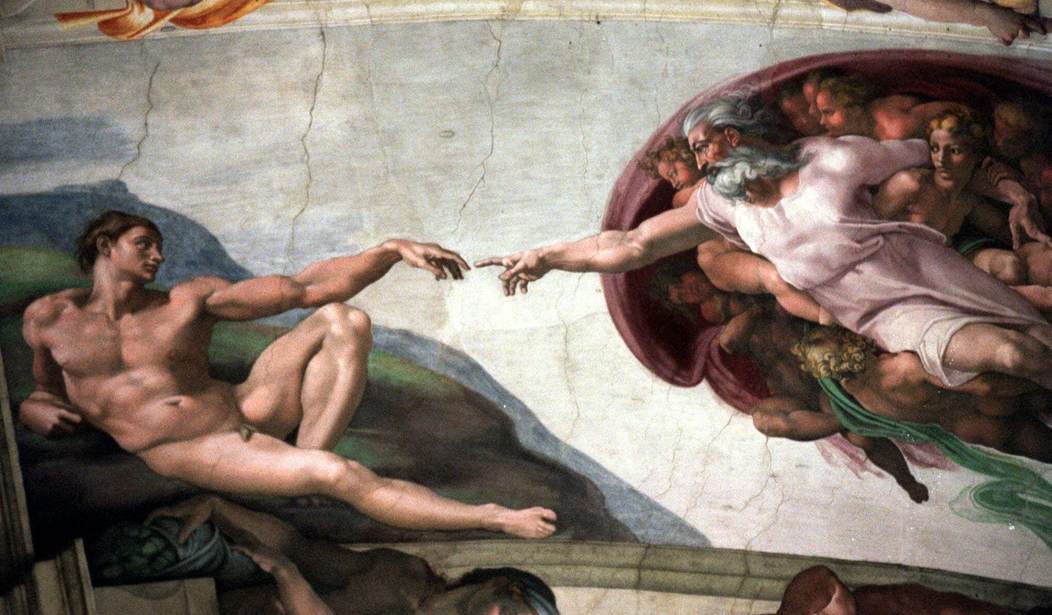Marco Rubio attracted both accolades and criticism for his recent handling of an atheist at a campaign event. In the video available below, Rubio was asked about “pandering to a certain religious group,” and how he plans to represent those without religious belief.
Rubio’s answer was comprehensive. He spoke of the right to believe, or not believe, and to live life accordingly. He committed to upholding the right of atheists to remain atheist. Rubio also expounded upon his faith, and presented Judaeo-Christian values as central to the American experiment.
“This nation was founded on the principle that your rights come for your creator,” Rubio told the crowd. “If there’s no creator, where do your rights come from?”
In answer to that rhetorical question, The Objective Standard posted an archived article to their Facebook page with the tagline: “Glad you asked.” The article, titled simply “Ayn Rand’s Theory of Rights,” provides an overview of the Objectivist case for political rights sans God. Author Craig Biddle begins by challenging the notion of God-given rights:
The idea that rights come from God is particularly popular among conservatives and Republicans. According to this theory, an all-powerful, infallible, all-good being makes moral law and gives man rights; thus rights exist prior to and apart from any man-made law and cannot be granted or repealed by government…
But the theory that rights come from God is hopeless. To begin with, there is no evidence for the existence of such a being, much less for the existence of rights that somehow emanate from his will.
Biddle goes on to present an alternative origin for rights. His entire case must be considered before it can be properly understood. But the gist is summed up in this excerpt:
In order to live as a human being, a person must be able to act on his own judgment; the only thing that can stop him from doing so is other people; and the only way they can stop him is by means of physical force…
Rand reasoned that because man’s life is the standard of moral value, because each person should act to sustain and further his own life, and because physical force used against a person stops him from acting on his basic means of living, we need a moral principle to protect ourselves from people and governments that attempt to use force against us. That principle involves the concept of rights… “a moral principle defining and sanctioning a man’s freedom of action in a social context.”
Rights therefore emerge as the rational boundaries around an individual’s life. In a way, rights emanate from each human being. Framed as an answer to Rubio’s question, our rights come from us, from the fact of our existence and our nature as human beings.
After I posted Rubio’s comments to my Facebook page, lauding them as an excellent response, a handful of atheist friends took issue with my assessment. To them, Rubio’s comments seemed condescending or worse. One wrote:
While I understand and appreciate that Rubio doesn’t care that I refuse to accept God’s grace (a bit condescending, but I digress), most nontheists don’t [object to the fact] that a candidate has personal faith. The issue is that it’s being discussed in a political way, not a personal [way].
There’s a natural alliance between believers who care about individual rights and non-believers who care about individual rights. But the current state of discourse between the two serves as a barrier to progress. Each faction thinks the other condescending and derisive. In certain instances, such judgments prove correct. But there’s much to gain by moving past disagreement on the importance of religion to coalesce around the importance of rights.
Believers need not discredit God to acknowledge Rand’s logic. If anything, it strengthens the case for rights when we understand them to manifest from our nature as human beings. Whether that nature was created or not, we can agree on the rights that emanate from it. Many of those rights center on belief and expression, and they are content-neutral. It doesn’t matter what you believe, or don’t believe. What matters is that you remain free to do so.
Rubio made that point, and made it well. But it was lost on some who perceived his appeal to God-given rights as a kind of theocratic claim. Whether it was intended that way or not, that was the impression, and it proved damaging to a necessary coalition between believers and non-believers who are equally vested in preserving individual rights.









Join the conversation as a VIP Member